Sunday 4 June
Antigone 1, 2 & 3 areas (Level 2)Registration
Monday 5 June
Antigone 1, 2 & 3 areas (Level 2)Registration
Plenary Sessions
Pasteur Auditorium (Level 1)Welcoming Addresses
Pasteur Auditorium (Level 1)Opening Plenary
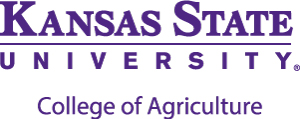
- In what climatic context does the evolution of agriculture take
place?
Nathalie de Noblet-Ducoudré (CEA - Université Paris-Saclay, Gif-sur-Yvette, France)
Antigone 1, 2 & 3 areas (Level 2)Coffee break - Visit of exhibition - Posters
Pasteur Auditorium (Level 1)Plenary 1
Chair: David Jordan
- The nexus between modelling and experimentation in understanding and predicting the
ecophysiological basis of crop adaptation
 Graeme Hammer (The University of Queensland,
Brisbane, Australia)
Graeme Hammer (The University of Queensland,
Brisbane, Australia)
- Developing sorghum hybrids to meet market needs
Laura Mayor (Corteva Agriscience, Manhattan, USA)
Antigone 1, 2 & 3 areas (Level 2)Lunch & Coffee - Visit of exhibition - Posters
Parallel Sessions 1
Pasteur Auditorium (Level 1)A - Genetics and genomics of adaptation -1-
 Chair: Gael Pressoir
Chair: Gael Pressoir
Selected oral presentations
- O01 - The genomics of local adaptation in sorghum
landraces
Aayudh Das (Department of Biology, Pennsylvania State Univeristy, University Park, PA, USA)
- O02 - Integration of sorghum genetics, human genetics, and
environmental condition demystified tannin domestication
Xianran Li (USDA-ARS, Pullman, WA, USA)
- O03 - Understanding sorghum race level diversity and development of
sorghum genomic resources by using deep learning-based variant calling approach
Abhishek Rathore (CIMMYT, Medak, Telangana, India)
- O04 - A brief history of stay-green in sorghum: Has it made a
difference?
Andrew Borrell (Queensland Alliance for Agriculture and Food Innovation, The University of Queensland, Warwick, QLD, Australia)
Sully 1 Room (Level 1)B - Agroecological intensification -1-
Chair: Ana Carcedo
Selected oral presentations
- O05 - Systems agronomy pathways for crop adaptation to heat stress and
terminal droughts
Daniel Rodriguez (The University of Queensland, Centre for Crop Sciences (QAAFI), Gatton, QLD, Australia)
- O06 - Adapting to heat stresses by sowing summer grain crops in
late-winter: Sorghum root growth, water use, and yield
Dongxue Zhao (The University of Queensland, Gatton, QLD, Australia)
- O07 - Wide row configurations in sorghum reduce crop water use
efficiency and yield in marginal rainfall environments in Australia
Loretta Serafin (Summer Grains, NSW Department of Primary Industries, Calala, NSW, Australia)
- O08 - Effect of soil treatment with Methionine on Striga
infection and sorghum growth under field conditions in Ethiopia
Taye Tessema (NABRC, Ethiopian Institute of Agricultural Research, Addis Ababa, Ethiopia)
Barthez Room (Level 2)C - Physiology and Phenotyping tools to support breeding -1-
 Chair: Krishna Jagadish SV
Chair: Krishna Jagadish SV
Selected oral presentations
- O09 - Flowering response to photoperiod combines the effect of the
daylength with the effects of the daily changes in sunrise and sunset times and of temperature
acclimation
Benoit Clerget (UMR AGAP Institute, Cirad, Montpellier, France)
- O10 - Dissecting the genetic value and genetic variability for the limited transpiration trait in sorghum: from simulations to field phenomics
Rubi Raymundo (Soil and Crops sciences, Colorado State University, Fort Collins, CO, USA)
- O11 - Contrasts in leaf photosynthetic low-light response across
temperatures generate differences in crop-scale radiation use efficiency
Alex Wu (QAAFI, The University of Queensland, Brisbane, Queensland, Australia)
- O12 - Plant response to a late heat stress can be modified by an
earlier one: a case study on sorghum grain production
Angelique Berger (Agap Institut, Cirad, Montpellier, France)
Rondelet Room (Level 2)D - Developing new products for human consumption -1-
![]() Chair: Rewati Raman Bhattarai
Chair: Rewati Raman Bhattarai
Selected oral presentations
- O13 - Effect of malted sorghum-based porridge on the nutritional status of infants and young children diagnosed with moderate acute malnutrition in Uganda
Richard Kajjura (School of Public Health, Makerere University, Kampala, Uganda)
- O14 - Innovative food-to-food fortified sorghum flours to improve
nutrition in rural West Africa
Moustapha Moussa (Institut National de la Recherche Agronomique du Niger (INRAN), Niamey, Republic of the Niger)
- O15 - Developing and marketing sorghum baked products: Acceptance of
novel biscuits as influenced by sensory characteristics and information
Pulane Nkhabutlane (Consumer Science, National University of Lesotho, Lesotho, Roma, Lesotho)
Antigone 1, 2 & 3 areas (Level 2)Coffee break - Visit of exhibition - Posters
Parallel Sessions 2
Pasteur Auditorium (Level 1)A - Highlighting sorghum diversity as a key to develop sustainable production systems
Chair: Somashekhar Punnuri
Selected oral presentations
- O17 - Sorghum wild relatives: The forgotten treasure-trove for
unlocking the hidden hunger crises in Sudan
Tilal Abdelhalim (Biotechnology and Biosafety Research Center, Agricultural Research Corporation (ARC), Khartoum North, Sudan)
- O18 - Crop diversity and West African farmers: agroecological
perspectives
Christian Leclerc (UMR AGAP Institut, Cirad, Montpellier, France)
 O19 - Investigations on pollen-mediated gene flow between grain sorghum
(Sorghum bicolor) and johnsongrass (Sorghum halepense)
O19 - Investigations on pollen-mediated gene flow between grain sorghum
(Sorghum bicolor) and johnsongrass (Sorghum halepense)
Muthukumar Bagavathiannan (Texas A&M University, College Station, TX, USA)
- O20 - Sorghum diversity for sustainable cropping systems in marginal
environments in the deep south of Madagascar
Kirsten Von Brocke (AGAP, Cirad, Montpellier, France)
Sully 1 Room (Level 1)B - Press conference
Barthez Room (Level 2)C - Physiology and Phenotyping tools to support breeding -2-
 Chair: Alemu Tirefessa
Chair: Alemu Tirefessa
Selected oral presentations
- O21 - 3D Computer Vision for High-throughput
Phenotyping
Jan Masner (Department of Information Technologies, Czech University of Life Sciences, Prague, Praha-Suchdol, Czechia)
- O22 - Evaluating variation in stem strength in response to artificial
drought stress amongst sorghum genotypes
Geetika Geetika (The University of Queensland, Warwick, Queensland, Australia)
- O23 - Quantifying effects of high temperature stress on seed set of
sorghum
Erik Van Oosterom (QAAFI (Queensland Alliance for Agriculture and Food Innovation), The University of Queensland, St Lucia, QLD, Australia)
- O24 - Deep learning pipeline for phenotyping sorghum
panicles
Chrisbin James (School of Agriculture and Food Sciences, The University of Queensland, Brisbane, Queensland, Australia)
Rondelet Room (Level 2)D - Optimizing breeding programs to maximize genetic gains -1-
Chair: Mitch Tuinstra
Selected oral presentations
- O25 - Effect of retraining on genomic prediction accuracy in
sorghum
Jean-Rigaud Charles (CHIBAS, Faculté des Sciences de l'Agriculture et de l'Environnement, Universite Quisqueya, Port au Prince, Haiti)
- O26 - Genetic gain from a rapid cycling genomic selection program for
non photoperiodic dual use sorghum
Gael Pressoir (CHIBAS, Université Quisqueya, Port-au-Prince, Haiti)
- O27 - Improving rate of genetic gain through optimised breeding
cycles
Abhishek Rathore (CIMMYT, Hyderabad, Telangana, India)
Antigone 1, 2 & 3 areas (Level 2)Poster Session 1 (odd-numbered posters)
Parallel Sessions
Barthez Room (Level 2)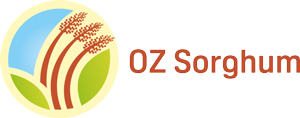 Three-Minute Thesis Competition (3MT) -1.1-
Three-Minute Thesis Competition (3MT) -1.1-
Rondelet Room (Level 2) Three-Minute Thesis Competition (3MT) -1.2-
Three-Minute Thesis Competition (3MT) -1.2-
Antigone 1, 2 & 3 areas (Level 2)Welcome cocktail

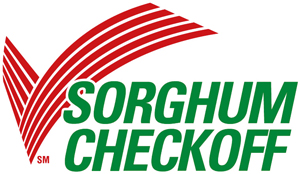
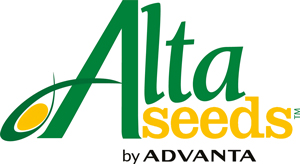 Sponsored by
Sponsored by
 Chair: Ian Godwin
Chair: Ian Godwin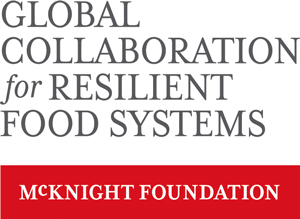 Chair: Bettina Haussmann
Chair: Bettina Haussmann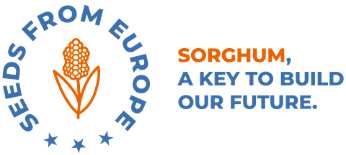 Chair: Tadesse Teferra
Chair: Tadesse Teferra Chair: Timothy Dalton
Chair: Timothy Dalton Chair: Emma Mace
Chair: Emma Mace